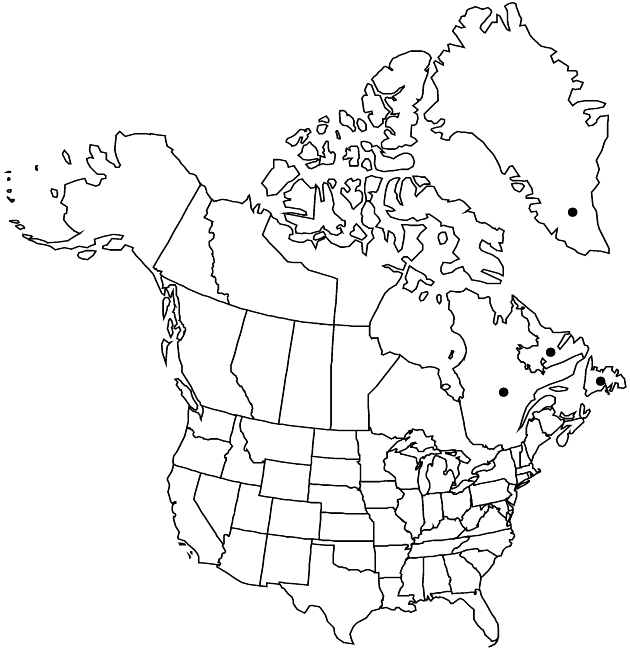Omalotheca norvegica
in F. W. Schultz, Arch. Fl., 311. 1861.
Common names: Norwegian Arctic-cudweed gnaphale de Norvège
Basionym: Gnaphalium norvegicum Gunnerus Fl. Norveg. 2: 105. 1772
Treatment appears in FNA Volume 19. Treatment on page 439.
Revision as of 20:20, 16 December 2019 by FNA>Volume Importer
Plants 10–40 cm. Leaves basal and cauline, basal petiolate, blades 3-nerved, lanceolate to oblanceolate, 5–12 cm × 6–30 mm, distal cauline slightly smaller, oblanceolate, faces concolor or weakly bicolor, grayish, thinly woolly. Heads (10–60+) in compact, spiciform (leafy-bracteate, sometimes interrupted) arrays (1.5–14 cm, occupying 1/8–1/4 of plant heights, primary axes usually not visible). Involucres cylindro-campanulate, 5.5–6 mm. Phyllaries brown to reddish brown with narrow pale center and base. Cypselae cylindric, minutely strigose; pappus bristles basally connate, falling together. 2n = 56.
Phenology: Flowering Jul–Sep.
Habitat: Wet or peaty slopes, alpine and subalpine meadows, cliff ledges, rocky slopes
Elevation: 400–1300 m
Distribution

Greenland, Nfld. and Labr., Que., Europe.
Discussion
Selected References
None.
Lower Taxa
None.